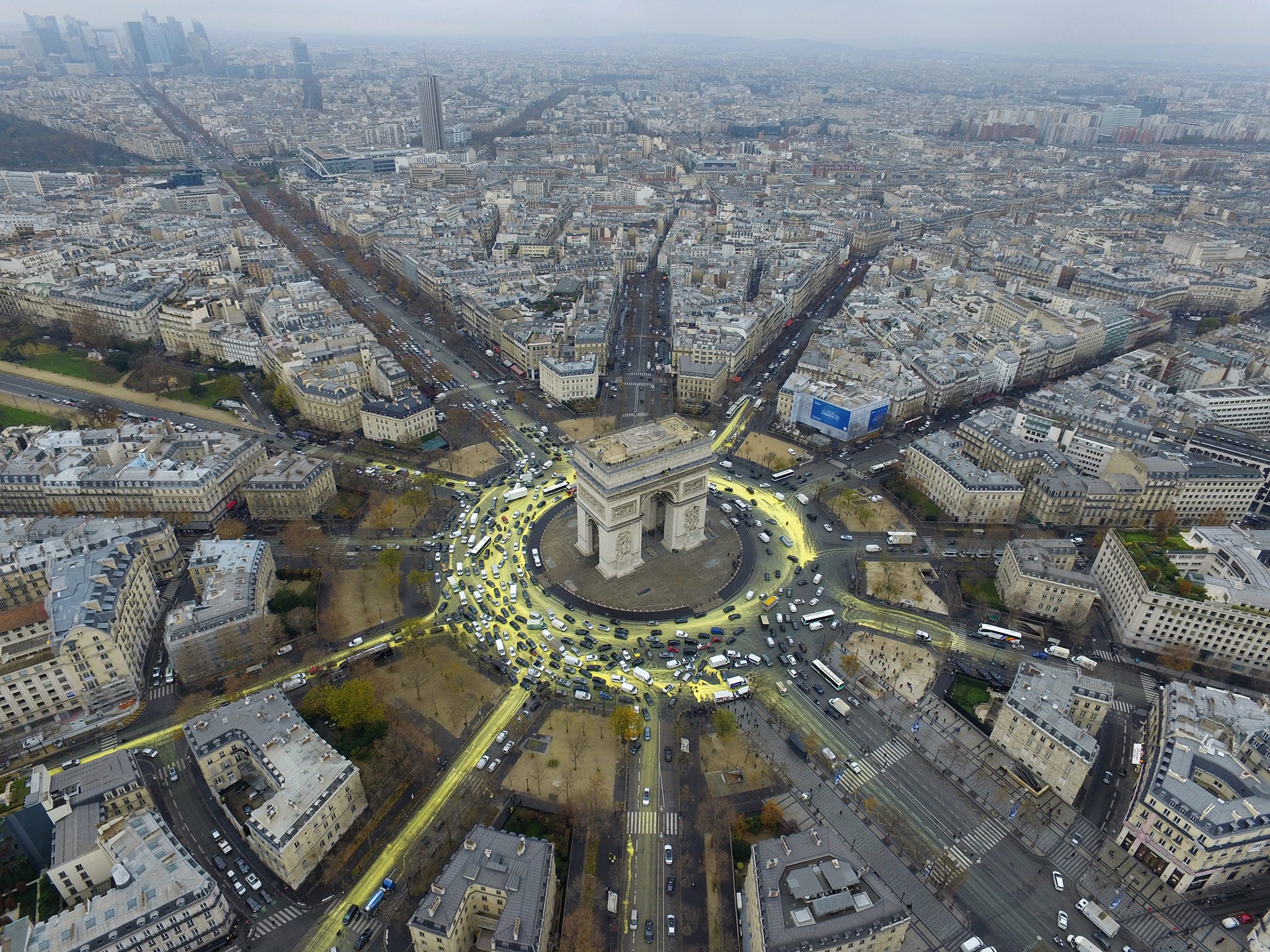COP21: World leaders agree to cut global official warming target to 1.5C
Expected reduction in the long-standing official global warming target has been broadly welcomed as major breakthrough

Your support helps us to tell the story
From reproductive rights to climate change to Big Tech, The Independent is on the ground when the story is developing. Whether it's investigating the financials of Elon Musk's pro-Trump PAC or producing our latest documentary, 'The A Word', which shines a light on the American women fighting for reproductive rights, we know how important it is to parse out the facts from the messaging.
At such a critical moment in US history, we need reporters on the ground. Your donation allows us to keep sending journalists to speak to both sides of the story.
The Independent is trusted by Americans across the entire political spectrum. And unlike many other quality news outlets, we choose not to lock Americans out of our reporting and analysis with paywalls. We believe quality journalism should be available to everyone, paid for by those who can afford it.
Your support makes all the difference.World leaders stand on the brink of a historic deal to tackle climate change after agreeing to cut dramatically their official target for global warming – from 2C to around 1.5C.
The latest draft of a crucial global warming agreement being worked on in Paris includes a pledge for a new goal “to keep the rise to well below 2C above pre-industrial levels and to pursue efforts to limit the temperature increase to 1.5C”. A final deal is expected to be clinched today.
And while negotiators cautioned that the clause could be changed at the very last minute – or pulled from the final agreement altogether – they said that was highly unlikely.
The expected reduction in the long-standing official global warming target was broadly welcomed as a major breakthrough in the battle to curb climate change.
However, concerns remain about other sections of the draft agreement as rich countries and developed nations clashed over how responsibility for tackling climate change should be shared between them.
The UN Secretary-General Ban Ki-moon implored all countries to put their differences aside to ensure a deal could be agreed with enough teeth to curb the worst excesses of global warming.
“I have been attending many difficult multilateral negotiations, but by any standard, this negotiation is the most complicated, most difficult, but most important for humanity,” he said.
“We have just very limited hours remaining. I am urging and appealing to all parties to take the final decision for humanity.”
India’s Environment Minister, Prakash Javadekar, underlined the divisions that remained between the rich and poor countries, adding: “The developed world is not showing flexibility. President Hollande has said if the developed world does not show the spirit of accord, Paris success is not guaranteed.”
But negotiators said they were hopeful that a meaningful deal would be struck today despite the “hardball” tactics of many negotiators.
“This is a complex negotiation, and if these countries want to walk out of here as heroes they’re all going to have to give a little. Any country that holds out and wrecks the deal here is going to be regarded as a pariah in many quarters and I doubt any will really want to put itself in that position,” said Richard Black, director of the Energy and Climate Intelligence think-tank.
But negotiators were also acknowledging the danger that to secure the support of all parties the agreement may have to be watered down so much that it would be too weak effectively to tackle climate change.
Today’s breakthrough on the official global warming targets follows sustained lobbying by countries in low-lying, hot and Arctic regions – which are particularly vulnerable to climate change – after scientific research demonstrated that 2C of warming would spell disaster for them.
Although a 0.5C reduction in the target may not sound significant, scientists say it would dramatically reduce the frequency and severity of hugely damaging weather events such as droughts and storms and would curb rising sea levels.
The new temperature target will lie at the centre of a new climate change agreement that has been years in the making.
Ministers and advisers from 192 countries have been locked in a final round of negotiations at a climate change summit in Paris over the past fortnight, with UN officials and representatives of the host French government.
The talks were meant to be concluded tonight but have been extended into Saturday to give officials more time to resolve some of the outstanding disputes. As discussions were set to run through the third consecutive night, another key part of any agreement – a system requiring countries to step up their climate pledges every five years – looked close to being agreed.
The points of contention included establishing a system to measure and monitor emissions to ensure countries are sticking to their pledges, and how much money the rich countries should give the poor nations to help them shift from fossil fuels to renewable energy, and how much compensation – known as “loss and damage” finance – to give them for inflicting global warming on them through centuries of coal burning.
Join our commenting forum
Join thought-provoking conversations, follow other Independent readers and see their replies
Comments